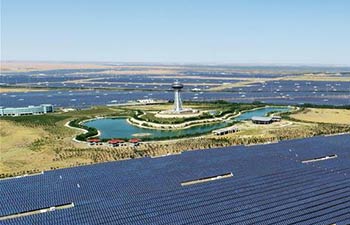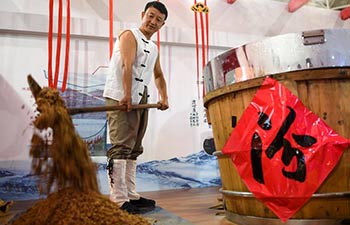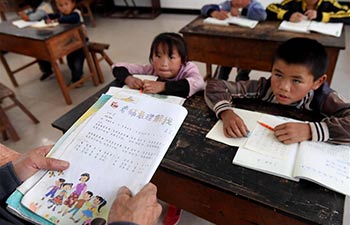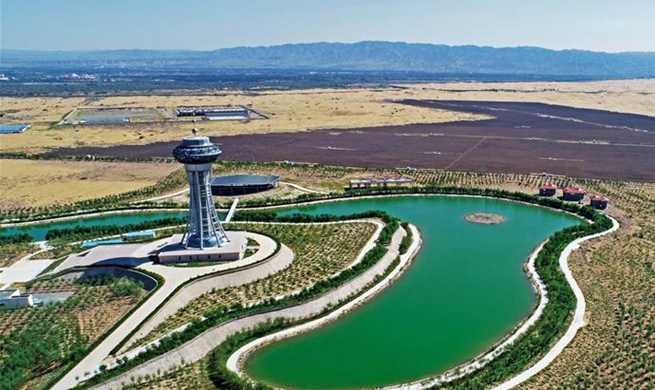URUMQI, Sept. 10 (Xinhua) -- "Dear customer, your parcel has arrived. Please fetch it beside your flock."
It was 9 a.m. Courier Ma Yong and a coworker loaded parcels onto the van in the Qinghe County logistic distribution center, and set out for the Sandaohaizi valley, where most local herders graze their flock in summer.
Around the same time, herder Kusayen Halidulla and his family were packing for their migration to the autumn grazing pasture.
Ma drove out of town, down the winding mountain road. Two hundred km away Kusayen was waiting, rubbing his hands. He had been excitedly awaiting Ma's arrival since he got up this morning when he received a text message informing him that a parcel would be delivered.
Inside that parcel was, incredibly, a motorcycle. Kusayen had ordered it online so he could ride it for their migration.
Like the other 300 herder families in remote Sandaohaizi, Kusayen's family have preserved the tradition of their ancestors -- grazing and migrating on horseback on the pastures of Xinjiang Uygur Autonomous Region, northwest China. They live in portable yurts so they have no postal address.
Just a year ago, Kusayen had to travel for 80 km by bus to the town to buy coats and boots for the migration. "To go shopping, we used to set out before sunrise and wouldn't get back home until sunset," he said. "It was a long ride. Products in the shops were expensive, and we didn't have many options."
This year, however, roads were paved and optical fiber cables were installed in the area, and with the rapid development of logistics, herders can finally join the world's largest e-commerce market. With 569 million online shoppers, China saw its online retail sales shoot up to 4.08 trillion yuan (about 594 billion U.S. dollars) during the first half of 2018.
To promote e-commerce among herders, local government has set up a service station, equipped with computers and trained young herders to help people browse online. The government also works with e-commerce companies to provide couriers subsidies for trekking around the prairies and mountains.
Ma serves seven villages. He usually calls the buyers in advance, and the herders can either fetch the parcels by themselves in the service station or ask Ma to deliver the parcels to an agreed place, be it a large stone by the river, or a tree on the pasture.
He delivers about 20 to 40 parcels a day in Kusayen's village, mostly clothes, shoes and household supplies. He has also delivered large items like portable washing machine and portable solar water heater, and some downright weird things, like a pet tortoise.
Kusayen ordered the motorcycle online from the city of Chongqing, southwest China, a week ago. "All my family, even my parents, use cellphones. We buy everything online now, food, clothes, furniture, and even tools to build yurts," he said.
At 2 p.m., Ma's van arrived at Kusayen's yurt. The couriers unloaded the huge box from the van, and unwrapped the packing. And Kusayen couldn't wait to take a ride.
"I can ride on the hills faster and save on all the horse feeding and saddling. It's so much easier than riding a horse," he said, twisting the throttle to feel the roar. "It was too much of a hassle to buy a motorcycle in the past."
Bidding farewell to the happy customer, Ma took on the next delivery. He said that sometimes it was hard to drive on the snowy mountain roads, but some herders would ride on horseback to help them out.
Content with his purchase, Kusayen rode the new bike and led his family and flock on their migration.
He stopped to graze the flock, and, leaning on his motorcycle, began to browse on his cellphone.
"I want to buy a coat for the upcoming winter, and some skincare for my wife. It's hard to choose from so many options," said the experienced shopper. "I'm waiting for Nov. 11, China's Singles' Day, when online retailers have promotions."

















